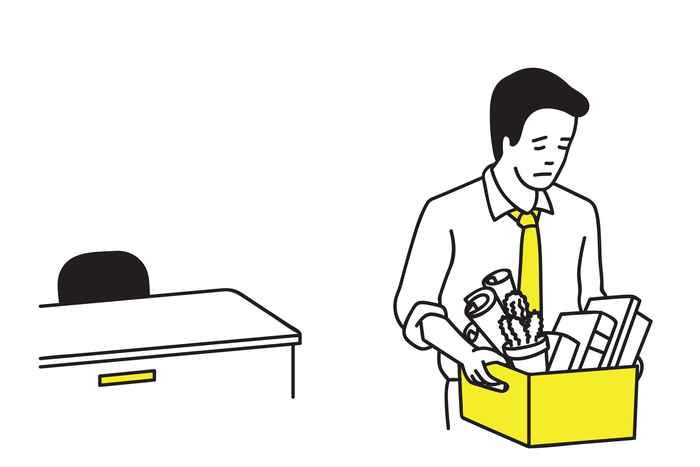The “losers” of the economy and what is owed to them
Amsterdam Law School
22 September 2025

Tagiuri witnessed the effects of rapid economic transformations firsthand. ‘I’m Italian. When you drive across Italy, you see the negative effects in small towns. A small supermarket closes, and it’s not just someone losing their business, but there is also a collective loss: people no longer have easy access to a shop and the meaningful experiences that come with it. These types of examples inspire me in terms of what the law can do to ease the blow.’
Who exactly are the “losers” in your research?
‘When I use the word “losers” I seek to describe those who lose out in economic transformation: the businesses and workers who rely on an economic arrangement that becomes outdated. Technology and AI render some skills redundant: workers in the automotive industry lose their jobs to machines, and web developers to AI. Small shops go out of business due to the rise of online shopping. Climate change can cause fishermen to lose income and livelihood, as some species are threatened. Furthermore, consumers can also be “losers”: if the markets around them change too rapidly, they may lose cherished products or experiences. These are some of the “losers” in my project. But it’s also their families and communities experiencing loss through them.’
History shows that unaddressed resentment can be highly disruptive socially
Why do we owe something to people who risk going out of business because of economic transformation?
‘The scale of the current economic transformation is intense. Globalisation and digitalisation significantly increase the scale of the problem. As for climate change, entire areas of production may become impossible. Apart from the scale of the problem, there is also the political element. There is a risk of backlash in the form of far-right politics. History shows that unaddressed resentment can be highly disruptive socially. More fundamentally, including those who experience loss in the new economy is about justice, which is what the project plans to explore.’
Wouldn’t it be better to prevent people from becoming “losers”?
‘Absolutely. I look at both. What I call governance of loss strategies is also partly about preventing people from experiencing loss, perhaps by slowing down the pace of economic change, or ensuring that loss is not felt so intensely. Sometimes loss can be prevented, and sometimes not. So, the project focuses on both.’

Giacomo Tagiuri received an ERC Starting Grant for his research project The Governance of Loss in the European Union. He is an assistant professor of EU Law and the acting director at the Amsterdam Centre for European Law & Governance (ACELG).
What can law actually do?
Several areas of the law are concerned about those who suffer in economic transformation. For example, the national welfare state has redistributive policies that compensate “losers”. Or, thinking about the EU, as part of the Green Deal, there are policies to help communities dependent on fossil fuel industries during the transition. The EU does this, for example, by assisting workers in gaining new skills. But in this project, we look beyond that. I hypothesise that, in many areas of the law, we find rules that protect people against rapid changes. For example, I intend to look at consumer law, competition law, and the common agricultural policy. Moreover, I suspect that governance of loss strategies that focus solely on compensation or re-skilling are incomplete. We need to understand better how the law can address loss of community and meaning. The economy is not just about buying things: it is also about creating meaning. At the local supermarket, people meet each other and socialise. You don’t address the loss of community by only financially compensating people.’
Why is this the responsibility of the EU?
‘I don’t think the responsibility is for the EU alone, but the EU has a large role to play. One reason is that the EU pushes these transformations by pursuing free trade, digital markets, and the Green Transition. So, in some ways, the EU creates the conditions for some of the loss I study to emerge. Don’t take me wrong, some of these transformations, like the Green Transition, are much needed. But our ability to sustain them depends on having good governance of loss strategies. The EU today is very aware of its responsibility to the “losers” of the transformations it drives. If you look closely, there are already many attempts to compensate and make the transition gradual. And here comes a second reason; the EU has powers, resources and regulatory techniques that make it well placed to be part of the solution.’

The economy is not just about buying things: it is also about creating meaning
Are the measures you advocate not slowing down economic growth?
‘I am aware of these risks. I am not saying we must assist all “losers”. There are difficult decisions to make. But currently, politics is the only driver of decisions about who gets accommodation and who does not; my project seeks to provide more principled answers.’
How are you going to answer these questions in your research?
‘One part of the work is theoretical. We develop a theory that conceptualises different types of loss and different legal strategies to assist “losers”. The theory has a normative component, which means it tells which “losers” deserve assistance, why, and how to do this. A second part of the project is more socio-legal, meaning that it attempts to describe how law operates on the ground in three economic sectors and whether it effectively addresses the concerns of workers and consumers. We examine agriculture and fisheries, the automotive industry, and consumer services such as retail and tourism.’
What do you hope your research will eventually do?
‘My research would have succeeded if it provides a toolbox with strategies to handle loss in different situations. An important point: we shouldn’t accommodate “losers” only to silence their grievances - my strong intuition is that better understanding how loss is experienced, and taking these experiences seriously, can contribute to the emergence of more just economies and societies.’